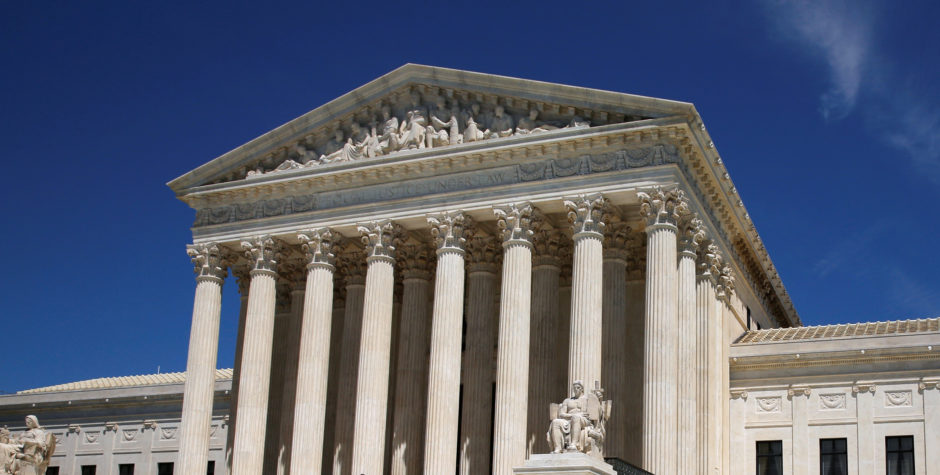ACLJ Supports National Security at Supreme Court
The American Center for Law and Justice (“ACLJ”) has filed an amicus (friend-of-the-court) brief in the United States Supreme Court urging the Court to continue to allow the full implementation of President Trump’s National Security Proclamation. The brief was filed with the support of the ACLJ’s Committee to Defend Our National Security from Terror, which represents more than 280,000 Americans who have stood in support of the President’s efforts to protect this nation from the entry of foreign terrorists.
The Proclamation, issued in late September, fulfilled the promise of President Trump’s March 6, 2017 National Security Executive Order. The March 6th Order, among other things, called for a global review by the Secretary of Homeland Security of nearly 200 countries to determine whether they provide sufficient information about their nationals seeking entry into our country. The Secretary was to report the findings to the President. During the review, there was supposed to be a 90-day suspension of entry into this country of nationals from six countries with terrorism concerns (Iran, Libya, Somalia, Sudan, Syria, and Yemen).
As a result of the global review, the Secretary informed the President that eight countries (Chad, Iran, Syria, Libya, Somalia, North Korea, Venezuela, and Yemen) did not satisfy the security criteria. After review and consultation within the Executive Branch, the President issued the Proclamation, imposing immigration restrictions on nationals from those countries until they comply with the necessary security criteria. Our nation also has concerns with terrorism in many of those eight countries.
Two federal judges (one in Hawaii and one in Maryland) blocked the full implementation of the Proclamation. Two federal appellate courts (the Fourth and Ninth Circuits) upheld the injunctions. Despite the two injunctions, the Proclamation remains in full effect for the time being since the Supreme Court has halted the impact of the injunctions pending its review and final decision on the legality of the Proclamation.
Among the legal questions the Supreme Court will consider are the scope of the President’s authority to protect our national security and whether the Proclamation violates the Establishment Clause of the First Amendment to the Constitution, as claimed by the plaintiffs.
We address those questions head on in our brief. We explain that the Constitution and federal statutes provide the President with broad power to exclude aliens from this country on the basis of facially legitimate reasons. When the Supreme Court has considered constitutional challenges to immigration-related actions in the past, it has declined to subject those actions to the same level of scrutiny applied to non-immigration-related actions given the sensitive and discretionary nature of the subject. That same deference should be given to President Trump and his senior advisors here, as the Proclamation deals with national security and protecting our country from foreign terrorists.
Furthermore, the Supreme Court has previously explained that a government act is consistent with the Establishment Clause if it has a secular purpose and was not motivated wholly by religious or anti-religious considerations. The Proclamation clearly serves a genuine secular purpose—protecting our national security—and is not motivated by anti-religious considerations.
Our brief explains that the Court should not disregard the Proclamation’s obvious secular purpose or focus on miscellaneous comments made by then-candidate Trump, or by his advisors (which have been taken out of context to support the incorrect claim that the Proclamation is a “Muslim ban”). The mere suggestion of a possible religious or anti-religious motive, mined from past comments, is not enough to doom government action. The Proclamation should continue to be enforced in full.
The ACLJ has been engaged in this battle from Day One. Since the President first began taking Executive action on this issue early last year, we have filed nine amicus briefs: two in the federal trial courts, four in the federal appellate courts, and three in the United States Supreme Court. These briefs have urged the various courts to uphold the lawfulness of the President’s efforts to protect the security of our country.
The Supreme Court is scheduled to hold oral argument in the case on April 25th. We will keep you posted as this case proceeds.
